Washington Post editor banned journalists’ goodbye emails amid exodus after bungled election coverage
The Washington Post’s top editor has cruelly banned farewell emails from departing employees, as journalists continue to leave the paper amid growing fears for the paper’s future.
After Post owner Jeff Bezos called for the editorial board’s endorsement of Democratic candidate Kamala Harris to be rescinded, a group of reporters announced their departure.
The mass exodus has reached such high numbers that the Post’s interim editor-in-chief Matt Murray has imposed a ban on farewell emails, believing they are bad for morale.
The decision has now been reversed after opposition.
The newspaper’s shock decision not to back a candidate in the election cost them more than 250,000 subscriptions, and the blow only increased fears about recent financial pressures.
Last September, the Post laid off a quarter of its workforce at ArcXP, a separate software unit, months after implementing buyouts in an effort to avoid layoffs.
That month, the Post’s new publisher and CEO, William Lewis, issued a statement to D.C. office employees detailing how dire the publication’s financial situation was while promising to “turn the tide.”
It was then that the newspaper saw a series of exits, which only increased in number following the decision to block the typically left-wing newspaper’s endorsement of Harris.
Bezos defended the decision in an op-ed citing “distrust” of the media.
The editor of the Washington Post cruelly banned farewell emails as journalists fled the paper amid mounting fears for its future
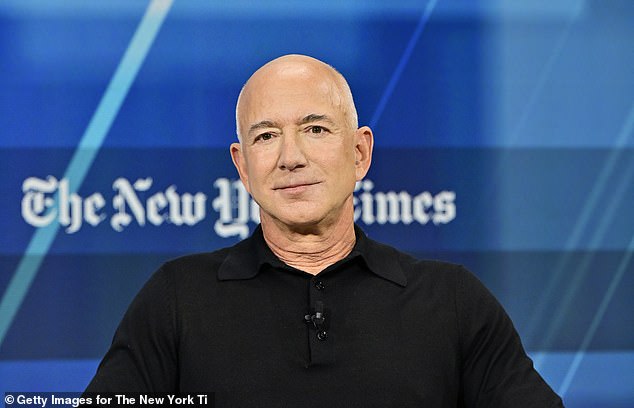
After Post owner Jeff Bezos called for the editorial board’s endorsement of Democratic candidate Kamala Harris to be rescinded, a flock of reporters announced their departure.
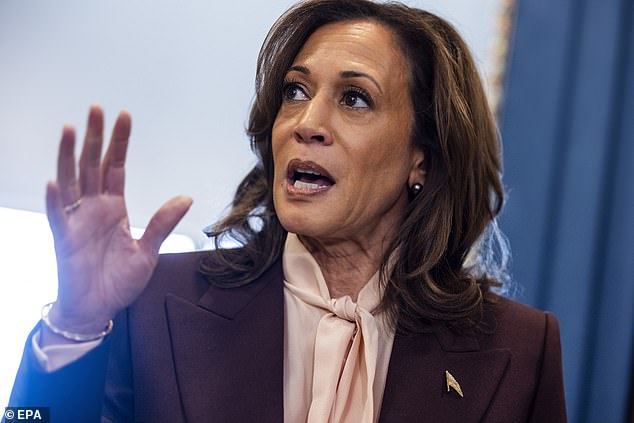
The newspaper’s shocking decision not to support a presidential candidate in the election cost the newspaper more than 250,000 subscriptions
“What presidential endorsements actually do is create a perception of bias. A perception of non-independence. Ending it is a decision of principle, and it is the right decision,” he wrote at the time.
This move cost the outlet several of their well-known reporters who were poached by rival newspapers, such as Michael Scherer and Ashley Parker of The Atlantic and editor-in-chief Matea Gold of The New York Times.
Prominent opinion writers David Hoffman, Molly Roberts and Robert Kagan also quit after the endorsement decision.
White House correspondent Tyler Pager announced last week that he would rejoin The New York Times.
Opinion editor Amanda Katz and her deputy Charles Lane also left.
The exits have many wondering whether both Lewis and Bezos made a mistake by alienating the people who staff the paper, which has become increasingly progressive over the years.
Insiders told Puck late last month how Lewis may not feel these exits are so damning as he steers the Post toward a broader, nonpartisan future.
In an interview with Semafor in January 2024, he called Scherer “his favorite reporter.”
A few months later, he confirmed what many had suspected: the newspaper had lost an astronomical $77 million the year before.
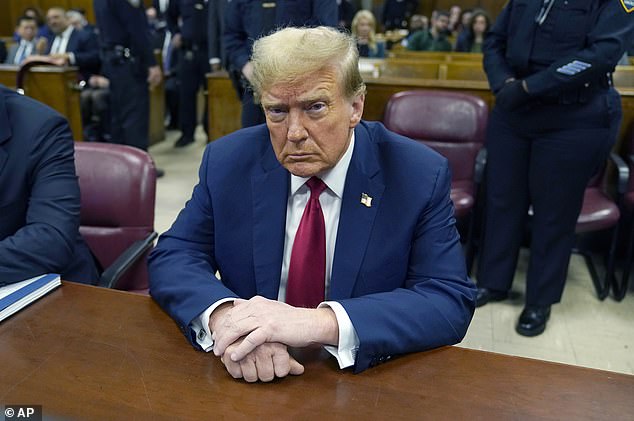
“What presidential endorsements actually do is create a perception of bias. A perception of non-independence. Ending it is a decision of principle, and it is the right one,” Bezos wrote, defending the decision not to endorse a candidate.

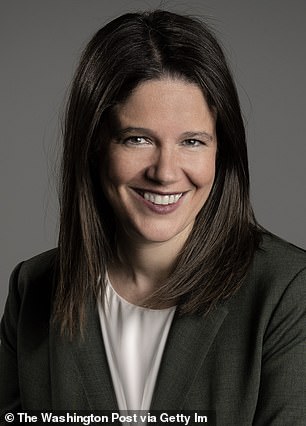
The decision during the election has resulted in some of their high-profile reporters being poached by rival newspapers, such as Ashley Parker (pictured right) of The Atlantic and editor-in-chief Matea Gold (pictured left) of The New York Times.

The mass exodus reached such high numbers that the Post’s interim editor-in-chief Matt Murray imposed a ban on farewell emails in the newsroom, believing they were bad for morale.
The parade of exits since the election has not helped matters Status revealed last week that star Trump reporter Josh Dawsey is parting ways with the publication in favor of the Wall Street Journal.
Insiders told journalist Oliver Darcy that Dawsey will start there next month as a political investigative reporter.
“It is also highly unlikely that he will be the last,” Darcy’s report said.
The company’s recent moves have raised fears of a looming downward spiral that will be difficult to reverse.
Part of the internal problem lies in Murray’s uncertain status. While no official announcement has been made yet, Lewis reportedly wants Murray to remain in the role permanently.
However, the uncertain handover of the position has left staffers wondering whether there is a lack of trust in Murray at senior positions.
‘It is the punchline of the editors that he is the ‘permanent temporary man’. To stay and make a pitch to recruit people, you have to be able to articulate your vision,” a Post veteran told me Intelligence.
“Matt may not be the most charismatic person or leader, but he can make a compelling argument. But this is true until, what, February, when Will and Jeff might replace him? It just has no credibility because it is a temporary vision.”


The parade of exits since the election includes star Trump reporter Josh Dawsey (left), who went to The Wall Street Journal, and White House correspondent Tyler Pager (right), who is rejoining The New York Times
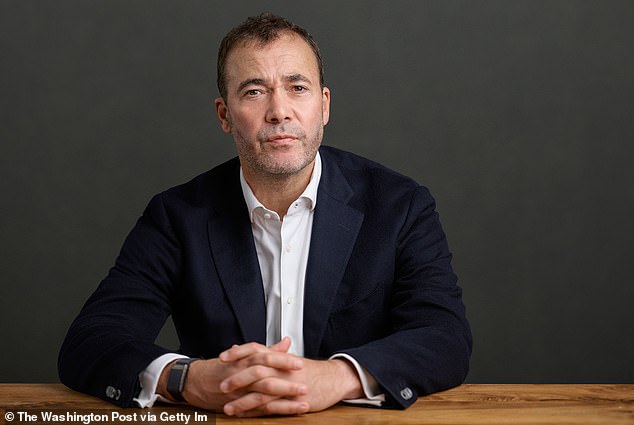
The Post’s new publisher and CEO, William Lewis, issued a statement to D.C. office staff in September detailing how dire the publication’s financial situation was while promising to “turn the tide.”
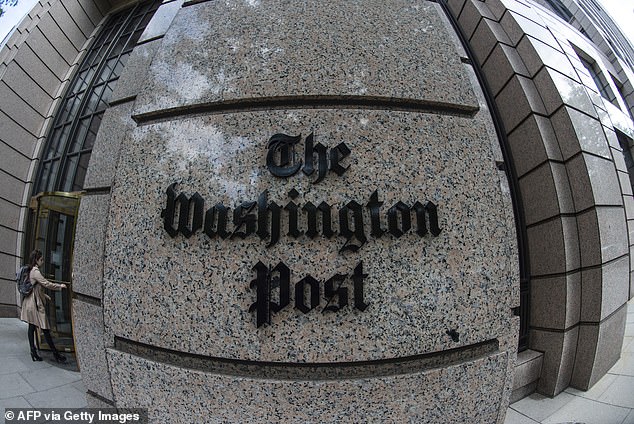
The Post also let go of four percent of its workforce on the business side of the company.
As the layoffs hit, the medium’s PR department announced it would no longer “publicize our journalism through broadcasters and traditional media.”
The PR team would instead focus its efforts on a “star talent unit,” Intelligencer reported.
However, as fears loom in the newsroom, an insider told Intelligence that Lewis’ leadership team is setting the bar high with the goal of attracting 200 million subscribers – a number that has reportedly shocked many who were aware of the meeting and found the number. unrealistic.’
“There was never a coherent strategy at the top related to news and subscriptions,” said one longtime employee. “It is the ultimate gaslighting to say, ‘You all haven’t changed and that’s why we’re failing,’ when in reality the institution has been failed by its corporate leaders.”
Tensions remain high at the publication, especially after Pulitzer Prize-winner Ann Telnaes walked out last week after her bosses ran a cartoon showing Bezos and other billionaires “bending the knee in front of a statue of Trump.”
Concerns are only growing after Lewis said in June: “We are losing large amounts of money. Your audience has halved in recent years. People don’t read your stuff. I can’t soften it anymore.’
The Intelligencer reported that those who worked with Lewis “have become unsettled by his deep frustration, bordering on contempt, toward his reporters.”

Pulitzer Prize-winning cartoonist Ann Telnaes walked out last week after her bosses featured a cartoon showing Bezos and other billionaires “bending the knee in front of a statue of Trump.”

Concerns are only growing after Lewis said in June: “We are losing large amounts of money. Your audience has halved in recent years. People don’t read your stuff. I can’t soften it anymore
The newsroom’s stance has raised concerns about the Post’s future, as unrest among journalists could lead to the departure of top talent unable to rehire at the same quality.
‘On the one hand it is the Washington Post. There aren’t that many good options for places to work, so they’re always going to be able to hire,” a veteran Post journalist told the outlet.
“But the downside is that right now, until they turn things around, they can’t attract top talent. Because top talent always has a choice between the Post and the Times, the Post and the Journal, the Post and The Atlantic.
‘And why would you choose the Postal Service?’
